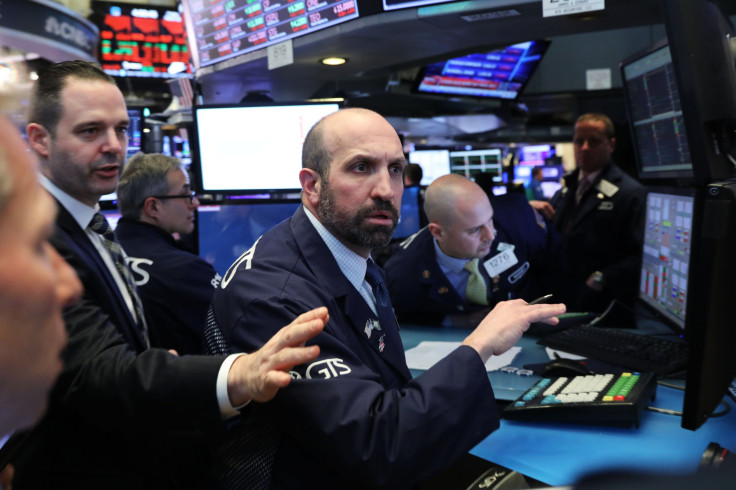Lower Open Likely For US Markets; Oil Down, Gold Jumps

Lower open likely for the U.S markets Monday, after the important stock index-futures fell affected by sell-off spree in Asian and European markets as investor pessimism escalated over falling global economic growth.
At 4.40 AM, futures at the S&P index were down 0.3 percent spurred by flattening yield curve and recession fears. Futures on Dow Jones (DJIA) fell 0.2 percent and Nasdaq 100 was down 0.4 percent.
Friday’s data showed that the U.S. manufacturing activity abruptly cooled in March and businesses across the eurozone were hit hard by falling growth.
Concerns about a U.S. recession escalated after remarks by the U.S. Federal Reserve. It pulled down 10-year treasury yields to the below three-month rate for the first time since 2007.
An inverted yield curve unfolds when long-term rates fall below short-term and are deemed a signal of the upcoming recession.
Oil price down
Oil prices crashed on Monday after concerns of a sharp economic slowdown overwhelmed supply cuts of crude exporters club OPEC and the U.S. sanctions on Iran and Venezuela.
Brent crude oil futures fell 30 cents to $66.73 per barrel at 0752 GMT, from the last close.
U.S. West Texas Intermediate (WTI) futures fell 0.6 percent taking per barrel price to $58.69, down 35 cents, or 0.6 percent, from the previous settlement.
Both benchmarks of crude oil price have slumped almost 3 percent since last week after soaring to the highest since November 2018.
Gold zooms
Gold prices jumped Monday as investors' appetite for riskier assets plunged on a potential U.S. recession and falling global growth. This stepped-up demand for yellow metal alongside bonds.
Spot gold soared 0.3 percent to touch $1,316.40 per ounce as of 0800 GMT, while U.S. gold futures rose 0.3 percent to $1,316.50 an ounce. The metal posted its third consecutive weekly gain and rose 1 percent, the most since the week ended Feb. 1.
“Market is in a risk aversion mode. It seems that the data from Friday night, of U.S. and Europe, didn't come as expected,” commented Michael McCarthy of CMC Markets.
Asian, Euro stocks plunge
Asian shares fell sharply on Monday after disappointing economic data from Europe and hints of a potential recession in the U.S. appeared on Friday.
Japan’s Nikkei 225 plunged 3.01 percent, while the Topix index crashed 2.45 percent. China’s mainland shares tumbled with the Shanghai composite losing 1.97 percent and Shenzhen component down by 1.8 percent.
The Hang Seng index in Hong Kong dropped 1.98 percent in its final hour of trading. South Korea’s Kospi too declined 1.92 percent while Australia’s ASX 200 suffered 1.11 percent fall.
European shares crashed on Monday morning, as fears of recession engulfed investors.
The pan-European Stoxx 600 traded 0.6 percent lower in the morning with most sectors in the negative.
Signs of slowing economic growth escalated after the German manufacturing contracted for the third consecutive month.
© Copyright IBTimes 2025. All rights reserved.





















